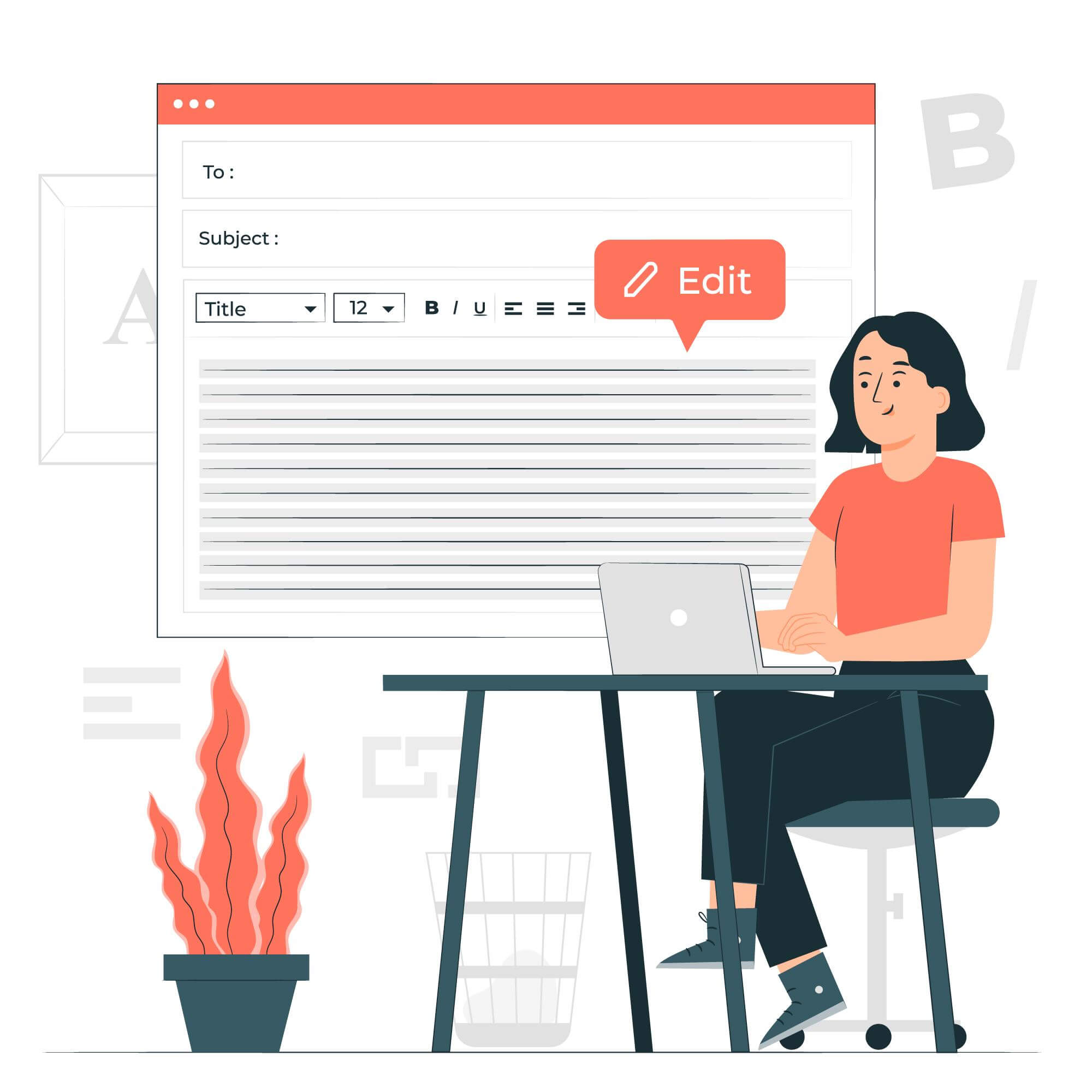
- App Development
- How To
- 17 Jan, 2025
- Marcia Barron
Table of Contents
Mobile banking is one of the world’s most popular and fastest-growing fintech innovations. It allows people to manage their finances from anywhere and at any time. It also helps them save time by avoiding long queues, managing their finances on the go, and having access to all their accounts from a single app.
Mobile banking has many advantages over traditional ways of banking, such as ATMs or branch visits. Gone are the days when people have to fall in line to complete their transactions or even take a leave from their daily responsibilities just to spend all day in the bank. Now, thanks to mobile banking, you can do your banking matters with just a few clicks and taps.
In the U.S., over 70% of customers from the four major banks use mobile banking apps, making mobile app development a growing industry. Bank of America’s mobile banking app has 29 million users worldwide, according to Statista.
More than convenience, mobile banking apps should ensure an overall pleasant customer experience. This includes ensuring that the app has a simple and user-friendly interface and well-thought features.
This article will explain how app development has been utilized in mobile banking. Mobile banking requires devices such as a tablet or smartphone to access bank and other financial accounts. All the things you would do in a physical bank, you can do with a few clicks or touches of a button.
With its notable features and undeniable convenience it brings, not to mention 24/7 access, it’s no wonder millions worldwide use mobile banking apps for any of their financial transactions today.
Among common reasons why people use mobile banking apps, according to a Statista report, are the following:
- View account balance and recent transaction
- Pay bills and transfer funds
- Contact customer service
- Open a new account
Everything you need to accomplish your banking needs should be available in a mobile banking app. Thus, an ideal app should offer core features such as bills payment, push notifications, account creation, and customer support.
It should not take too long to open a new account and upload the necessary documents as part of the sign-up process.
Some mobile apps have other valuable features, such as a QR code scanner, 2FA verification, cashback service, smartwatch apps, and spending trackers.
User-friendly design is important at this stage, especially since it helps an app stand out against competitors. Customers would be turned off if they cannot easily navigate the app and end up deleting it and choosing a different one instead.
Many people are too busy to fall in line for a bank transaction. That is why mobile banking is a very helpful tool for busy people who want to do online transactions no matter where they are.
While banking apps focus on automating everyday transactions, you can still contact actual humans for further assistance. For example, you can still talk to an actual agent or representative to unblock a card instead of a chatbot.
The Benefits of Mobile Banking
Most mobile banking apps are secure and have many features that add to the overall positive user experience. For banks, a mobile app can help lessen operational costs and staff expenses, and it is paperless, making it environment-friendly.

Other benefits of mobile banking are the following:
Lower expenses
Using mobile apps can help banks save money as they can cover a larger area and cope with high loads. Likewise, it offers better accuracy and reduces customer service expenses.
Mobile transactions are also less expensive than ATM transactions. The former can only cost a few cents per transaction, while the latter can cost almost a dollar or around $4 when you go to a branch.
High ROI
Software development, including mobile banking apps, could be expensive, especially in Australia, Canada, and the U.S. It depends on the features, UI/UX design, and platform. Naturally, banks would love to get back these expenses which can increase in:
- ATM withdrawals
- Revenue from transaction accounts
- Point-of-sale transactions
- Customer loyalty
- More positive engagement from customers
More positive customer experience
Speaking of positive experiences, some banks use desktop apps or chatbots to handle customer transactions. While these can help provide a better customer experience, mobile apps hit differently; for one, they are more convenient and secure.
You get the results you want in real-time without waiting hours. You can do your transactions no matter where you are. The mobile experience also makes a third of banking app users stay with their current bank.

Additional marketing channel
Nowadays, most banking apps use push notifications and a personal dashboard to notify customers of promos, announcements, and other important information. You don’t have to log in to their website or go to one of their branches to be updated.
Common Mobile Banking App Development Challenges
Most mobile banking apps usually have features that ensure user conveniences, such as 24/7 support, cashback, and transaction history, among a few. However, it always comes with challenges that could put off first-time users.
For one, the KYC (know your customer) verification process is a must before and while they use a mobile app. It could take time to complete the KYC process, but it ensures peace of mind and security for your hard-earned money.
The fintech industry is fast-growing, which also means ever-changing business logic and requirements. For mobile banking app developers, creating a codebase that they can easily update to make sweeping changes is essential.
Mobile banking app developers must also comply with legal regulations, such as the PCI SSC (PCI Security Standards Council), Bank Secrecy Act (BSA), Financial Modernization Act, and Fair Credit Reporting Act. The legal regulations depend on your location but should be followed nonetheless.
Takeaways
Mobile banking has changed how people do their financial transactions. It is a huge step towards the future of banking. It has made banking more convenient so people can focus more on more crucial things they need to accomplish.
Since it involves confidential information, mobile banking app developers should ensure customers’ data is secured and safe. More than convenience, a user-friendly interface and loads of useful features are the overall pleasant experience every customer deserves.
Social Join To Us
Write for us
Table of Contents
In today’s dynamic digital landscape, entrepreneurs and startups are constantly seeking innovative ways to carve out their niche. For those looking to venture into the world of mobile applications, specifically in the transportation sector, building a taxi booking app can be a lucrative endeavor. We’re here to guide you through the essential features that a successful taxi booking app should encompass, providing valuable insights for business people, startups, and entrepreneurs aiming to make a mark in this industry.
Let’s Ride!
Intuitive User Interface: The Launchpad of Your App
- Designing for Ease and Accessibility: The cornerstone of any remarkable taxi booking app is its user interface. It should be intuitive, easy to navigate, and free from clutter. We advocate for a design that is welcoming to all users, regardless of their tech proficiency, ensuring that booking a cab or taxi is a hassle-free experience.
- Inclusivity in Design: An inclusive app design, featuring elements like voice commands and readable fonts, not only cater to a diverse demographic but also broadens your taxi booking app’s appeal, making it accessible to a wider audience.
Real-Time Tracking: The Trust Builder
- Securing User Confidence: Real-time tracking is not just a feature—it’s a trust builder. By allowing your users to track their ride from booking to arrival and throughout journey, you instill a sense of security and reliability in your service. This feature is crucial in establishing and maintaining user trust in your taxi booking app.
- Empowering Drivers: This feature also plays a pivotal role in aiding drivers. Real-time updates on traffic, routes, and pickups can significantly enhance their efficiency, contributing to the overall success of your app.
Popular taxi booking apps have also installed real-time tracking feature and gained trust of their app users, which in-turn helped them in user retention.
Versatile Payment Solutions: The Key to User Convenience
- Facilitating Smooth Transactions: In the age of digital wallets and online banking, offering multiple payment options is a necessity. Integrating various payment methods caters to user preferences and enhances the booking experience.
- Prioritizing Security: While diversifying payment options, prioritize the security of transactions. Implement robust encryption and secure gateways to protect user data and maintain the integrity of your app.
Feedback and Rating Systems: The Path to Continuous Improvement
- Encouraging User Engagement: Incorporating a feedback and rating system is crucial for continual improvement. This feature enables users to share their experiences, providing you with valuable insights to refine and enhance your service. The review affects your business revenue as well.
- Quality Control through Ratings: These systems also serve as a quality control mechanism, ensuring that only the best drivers are part of your network, thereby elevating the standard of service offered by your taxi services app.
Reliable Customer Support: The Backbone of User Satisfaction
- Ensuring Constant Availability: Offering round-the-clock customer support is essential in resolving issues promptly and efficiently. This level of support reassures users that assistance is always available, enhancing their overall experience with your cab booking app.
- Diverse Communication Channels: Cater to various user preferences by providing support through multiple channels, such as chat, email, and phone. This approach makes your service more accessible and user-friendly.
Customized Offers and Discounts: The Strategy for User Retention
- Rewarding User Loyalty: Implementing tailored offers and discounts can significantly boost user engagement and retention. These incentives, whether for new users or loyal customers, add value to every interaction with your app for taxi booking services.
- Personalization is Key: Personalized promotions, based on user behavior and preferences, make your users feel valued and encourage continued use of your taxi booking mobile app.
Conclusion: Embarking on a Journey of Innovation
As you embark on the journey of developing a taxi booking app, remember that the key to success lies in a user-centric approach, innovative features, and a commitment to quality. These fundamental features form the backbone of a successful taxi booking app, catering to the needs of your users and setting your app apart in the competitive digital marketplace.
Table of Contents
As more and more businesses go digital, they realize the importance of acceptable Digital Marketing and SEO practices. A better SEO for your website translates typically into better business opportunities.
With rising competition, it is becoming increasingly difficult for SEO practitioners to complete all their work in the limited amount of time they get. With time, the customers are becoming ever more demanding, making life difficult for the SEO guys.
Automating some SEO tasks can prove to be beneficial. It is where Python comes to the rescue as using python scripts the SEO team can automate many of their functions, making their life simple.
What is the Python Programming Language?
Python is one of the most versatile and popular programming languages out there. It is an open-source, object-oriented programming language that supports a wide range of modules and libraries. This feature of Python makes it easy to understand, aiding in its popularity. Python is a scalable and fast language, and its efficiency can be ascertained from the fact that even Google is using Python to build its web crawlers.
The following are the significant areas where Python is used.
- Data computation
- Data extraction
- Data interpretation
- Machine learning
- Natural language processing
- SEO automation
- Deep learning
Why should you use Python for on-page SEO?
SEO is one of the most critical areas for any website/app. It would help if you took full advantage of any tools that help you in gaining leverage over your competitors in this vital area. Python is one such tool that can help you gain a competitive advantage. Let’s have a look at how Python can help you in improving your SEO.
SEO helps in the implementation
SEO consultation is big business. Every year millions of websites are being launched all over the world, and most of them die premature death due to a lack of acceptable SEO practices. It is where the role of an SEO consultant comes as they suggest specific changes in the website/app after analyzing it. But, most of SEO firms and consultants have one issue in common. They do not know whether their clients are taking action based on their recommendations or not.
Fortunately, there are solutions to this. SEO Automation Company like Rank sense makes the job of implementing the SEO recommendations easier by allowing the clients the option to implement three priority recommendations. The recommendations include things like adding title tags or using robots.txt.
Ranksense uses python scripts to accomplish the task of months into days. By implementing the SEO recommendations, the clients realize the benefit and come back again to the same SEO consultants for more, creating a win-win situation for all.
Do better visibility Benchmarking.
Visibility benchmarking is an important aspect affecting your website’s SEO ranking. It entails the current visibility of the website and identifies the gaps in the existing content. An essential element that visibility benchmarking highlights is the area where your opponent has visibility, and your website doesn’t.
Your SEO team will have to gather data from various sources like SEMrush, BrightEdge and so on. Then they will need to enter this data into an excel sheet, organize it by branded as well as non-branded keywords and then try to identify the visibility zones. The process becomes troublesome when you have a lot of non-branded keywords and opponents.
Python scripts can make the process automated by analyzing cross-site visitors. The python scripts can also aid you in identifying new customers and in scrutinizing the content gaps that are affecting your visibility negatively.
XML Sitemaps
An XML site map is a vital cog in the SEO process. It acts as a guiding light for Google in the finding of the pages to crawl on your website.
It becomes a tedious task when you have a dynamic website with thousands of pages like say Wikipedia or Amazon.com.
Python scripts can prove to be useful in this area as they will enable you to create personalized XML sitemaps for your webpages.
Response Code Analysis
Consider the scenario where you have a vital web page that is instrumental in driving most of the revenues that your website garners. For some reason, you find out that there has been a considerable drop in the number of visitors on this website, in-turn leading to a decline in revenues. Upon analysis, you find out that some critical links are broken, or you find a 302 redirect. By the time you fix these things, other things come up as your web page is a complex one, it has numerous hyperlinks and is currently ranking well on 10’s of keywords.
To solve this issue, we already have python scripts. These scripts will study your codes, making sure that you do not have any broken links or pages that inadvertently redirect the visitor to URLs other than those intended.
Image optimization
Image optimization is a neglected area of SEO. But our experience tells us that it is one of the most critical areas of SEO. If your images are not optimized according to the best SEO practices, then your website will lose out on invaluable web traffic. Specific Python-based APIs can make the task of image optimization easy and fast. They analyze the images on your website and search for opportunities of optimization like missing tags and captions.
Meta tag optimization
Python scripts can also help you in Meta tag optimization. The scripts extract title, descriptions, alt, H1, and robot tags with ease using specifically designed python APIs. Your website will gain significant leverage in SEO using Meta tag optimization.
Website speed monitoring and optimization
The speed with which your website loads is one of the critical components that determine the rank of your website on Google. If your website does not load fast enough, then you can kiss goodbye to your rankings and your customers as well.
If you have a small website with a limited number of webpages, then it is easy to monitor the speed of your website manually. But things become tricky if you have a website containing a vast number of webpages. It isn’t easy to manually test every web page when you have a lot of webpages to deal with. It is where Python comes to the rescue. You can test a lot of webpages for speed using python scripts. Talking about website speed, Python can also help in other areas of the web development process..
Keyword ranking computation & recommendation
There are Python scripts that allow you to automate the keyword ranking positioning of your website. Note that Google Trends also uses libraries like PyTrends and MatPlotLIb to zero down on the interest of the audience for particular search terms.
Competitive analyses
In the world of SEO, you need to keep a keen eye on the activities of your competitors. It isn’t easy to monitor the competitor activities round the clock manually. Using Python scripts, you can automate tasks like fetching the details of new launches and other competitor activities.
Analytics
Analytics is a critical component of any SEO exercise. You can use Python scripts to track and fetch data into various formats. Using the open-source libraries, one can directly transfer the data into document files, making it easy to use.
Content curation & recommendation
Apps like Netflix and Amazon thrive on recommendation engines. Most of the algorithms of these recommendation engines are developed in Python. It is because Python allows the developers much better support due to its massive range of APIs and libraries.
Python in action
Netflix
The world’s most popular streaming platform trusts Python for its content recommendation engine.
Spotify
The music streaming app also uses python scripts for its song recommendation engine which is powered by machine learning.
Twitter uses python scripts to curate its timeline content based on audience behaviour.
Salesforce
The popular Einstein AI developed by Salesforce also relied on Python for its AI.
Wrapping up
Automation helps SEO professionals in saving time. Using Python scripts, the SEO team can multiply their productivity and improve their working experience. The tasks that used to take hours can be accomplished within minutes using Python. Although you can still survive without automation, learning python will give you a head start in the race to the top.
Table of Contents
Mobile apps are the fundamental necessity for any business to survive and thrive in the modern-day competitive scenario. Be it better market penetration or increasing sales or providing better and more personalized customer services, mobile apps have become the most vital cog in each of these business aspects.
Businesses of any shape and size can use mobile apps. This is why a plethora of organizations are moving towards developing their own app to garner more customer attention. But in a hurry to jump in the bandwagon, business organizations, be it startups or enterprises, commit mistakes that could prove hazardous for them in the future.
Mistakes to Avoid when Hiring Mobile App Development Company
Here is the list of top blunders that a business should keep away from while hiring mobile app developers. Avoiding these blunders can help you take your business to greater heights with better profits.
Not focusing on the future
Most of the organizations are so much invested in the present times that they forget to think about the future and how they would run the mobile app in the long run. Businesses need to think about the changing needs for audiences to stay afloat. Business owners should make it a point to select from the top mobile app development companies that can stay up-to-date with the constant call of innovation that the mobile app world demands.
Innovation becomes essential for the smooth running of the product life cycle and will seal your app’s future. Working with an innovative app development agency will keep you on the same page and ensure that the mobile app’s planning is done for the long haul.
Scratchy Background search of the company
Doing an incomplete background check of the company that you are going to hire for app development can prove futile as you will not get the desired result. Make sure you check the company’s previous credentials thoroughly and go through the comments and reviews that their clients have made for them.
In addition to this, you can download the previous mobile apps built by the mobile app development firm to have a hands-on experience and try to get the look and feel of their work.
Focusing on cost over skills
We agree that the cost of mobile app development is an essential factor, but it should not be the basis for making your primary decision. Instead, an organization should form their judgment about hiring a mobile app developer based on the company’s experience and expertise in the work to see if they are fit for the job. Remember that, if you opt for a low initial cost, it will benefit you initially, but afterward, you have to pay dearly for the mistake you made.
You hire your best resources based on their skills and not on the price. Apply the same principle while hiring the best mobile app development company for your app. This will ensure that the hired app developers can also efficiently suggest and integrate the latest mobile app development trends taking your business a step ahead of your competitors.
Not asking the right questions
You need to clear the air about everything before hiring the remote app developers and hand over the application development work to them. Think about every possible situation that can happen and make a list of questions to ask your dedicated app developer.
Asking the right set of questions will keep you on the same page with the app development firm without a kind of confusion, which can hamper the mobile app development process.
Here are some of the most relevant questions that will help you in your quest:
- What is your total year of experience?
- List of clients that you have worked with previously?
- List of apps that you have developed for your clients?
- What is your method of providing updates to your clients during the app development?
- What support and maintenance we can expect after the delivery of the app?
Not looking for offshore companies
Businesses that opt for mobile app development partners in their own vicinity, devoid themselves of the expert and experienced app developers they can hire if they go for offshore IT companies.
Hiring an onshore app development company would provide you with limited opportunities to work with. Be it the vast experience of developing different kinds of apps or working on various tools or developing apps at a lower cost without compromising on the quality; an offshore company would provide you all of that.
Haste is waste
Enterprises should understand that mobile app development is a complicated process, and effective mobile apps can only be developed with team coordination. Thus, don’t proceed with the app development process unless you are not on the same page with the offshore mobile app development company or won’t get the expected output.
Important takeaways
While selecting an ideal mobile app development company to hire, you should keep all the factors mentioned above in mind to avoid any kind of blunder. Avoiding these mistakes will help you find your perfect mobile app development partner and develop more customer-centric mobile apps to enhance and expand your business.











